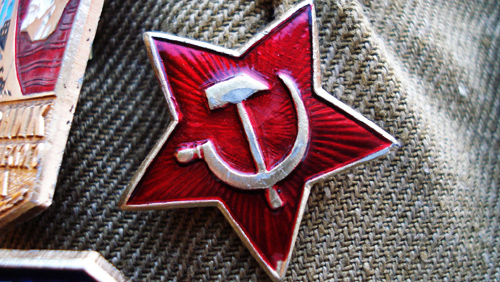My Queen and I

As the Queen addresses the United Nations General Assembly in New York, and pays her respects to those – including sixty three Britons – who lost their lives in the terrorist outrage on the World Trade Center, this may not be the most diplomatic occasion to pose the question; “will Britain ever become a Republic?”
After all, as I was teasing a great Canadian journalist friend of mine earlier, Elizabeth Windsor is Canada’s Head of State, whatever the protestations that may emanate from unruly Quebec. Her realms, yes that term is still used, also include Australia, New Zealand, Jamaica, Barbados, the Bahamas and yes, even Papua New Guinea. And this list is not complete. Even the United States, which forcibly ejected one of her ancestors well over two hundred years ago, seems partially in thrall to the charms of the British Monarchy. When in 1976, Americans celebrated the bicentenary of independence, the Queen was invited to wave to the crowds from Boston’s old Town Hall – scene of the ‘bloody massacre’ of American demonstrators by ‘red coats’ and immortalised in one of the first truly successful propaganda paintings by Paul Revere. The arrival of Princess Diana on the scene sent many Americans into raptures, and her untimely death had as many of them weeping into their handkerchiefs. And some Americans take sides too. I was staggered, two or three years ago, when walking into the United Nations to come across a woman holding a protest placard – this was during a visit by Prince Charles to New York. On the placard were pictures of Camilla Parker Bowles, the Prince’s new consort, and to put it politely an old Nag – under which she had scrawled the word ‘Camilla’.
In earlier times, such effrontery would have led to a quick and final trip to the Tower – not the Trump Tower – but the Tower of London, but intrigued I stopped and talked to her. This middle aged American woman of Scotch Irish ancestry was still furious with Charles for dumping Diana, aka ‘the Queen of Hearts’. Utterly baffled by this experience, I walked on.
But to try and answer the question about Britain and the Monarchy would probably require more verbiage than this column would allow. Suffice to say that the Monarchy is pretty adept at the art of survival, and the current Queen has been particularly adept precisely because she has refused to do what the PR professionals and the media have urged her to do for decades – i.e. try and appear ordinary. With possibly the exception of her intervention in the mid 1970s, through the Governor General of Australia, in dismissing the popular Labour Prime Minister – and Republican – Gough Whitlam, the Queen has largely managed to avoid political controversy. Her famous ‘annus horribilis’ followed from the death of the ‘People’s Princess’, a fire at Windsor Castle, and I suspect the fact that she had been made to pay income tax for the first time. But otherwise, this Queen, Elizabeth, barely puts a foot wrong (which is a lot more than can be said for her consort, Prince Philip, who all too frequently puts his foot right in it).
During the course of her reign – she was crowned in 1953 – the Queen has seen the end of Empire and the emergence of the Commonwealth. She has met countless Prime Ministers, Presidents and Heads of States, and seen Britain sign up to what is now the European Union. Most significantly perhaps, she has witnessed the death of deference, and a decline in support for the institution she represents, not only in countries such as Canada and Australia, but Britain too. Yet the show carries on.
I’m not quite sure that it will carry on in the same way once Elizabeth ceases to be Queen though. Prince Charles, the man who would have been King these past three decades will probably be old enough to pick up his pension, if he was eligible, and so who knows they may skip a generation entirely, and opt for Prince William. But when this happens the perfect opportunity will be provided for countries such as Canada and Australia to skip off and become Republics.
Somehow, and I write as a Republican in principle, I suspect that the Monarchy will reinvent itself enough to remain a British institution. And since you may ask about my weasel words ‘Republican in principle’, I had better come clean – and in doing so perhaps try and explain why my ambivalence is shared by so many, and may therefore not lead to the British Republic.
If I had a pet dog, I would name it ‘Cromwell’, in honour of the man who gave us the short-lived English Republic, and who elevated Parliament over the Monarchy. But if I was presented with the option of a fairly harmless Monarch, or the public’s choice for a President, I think I would opt for the former just for the sake of a quiet life.
I mean, can you imagine it? President Richard Branson? Princess Victoria Beckham?
No bloody thank you!





